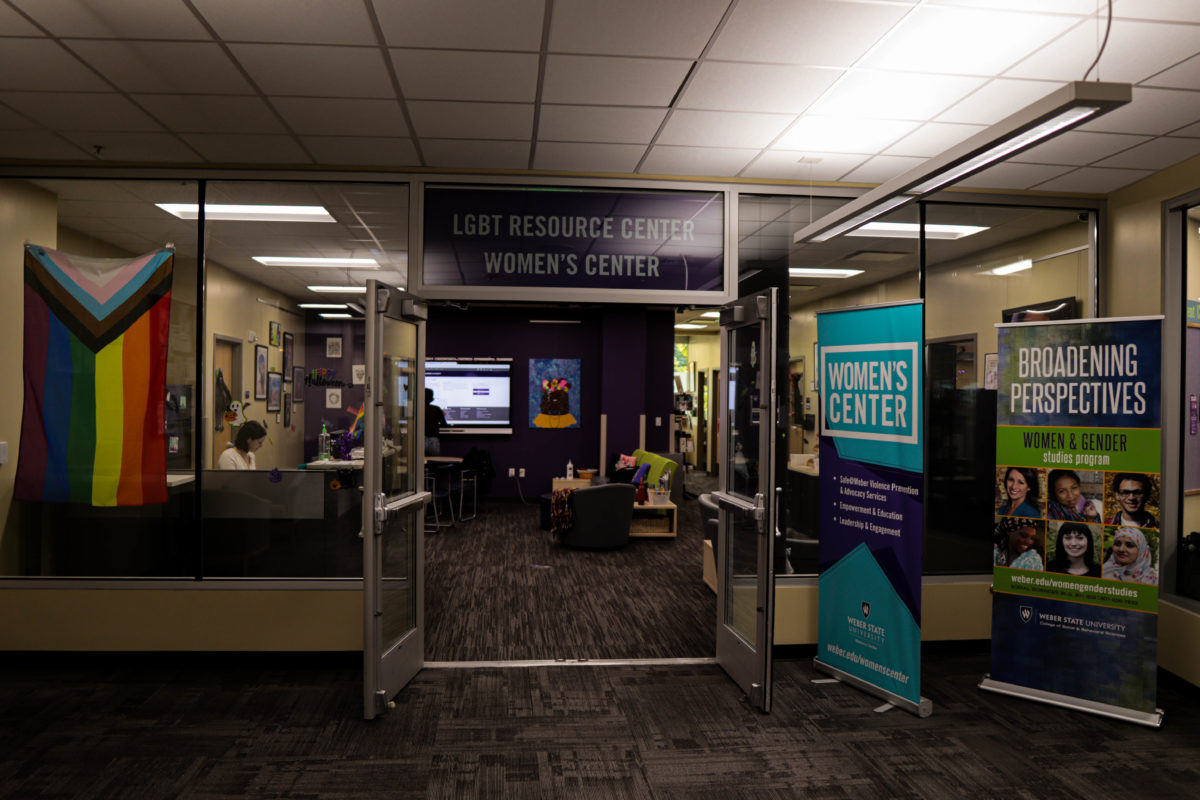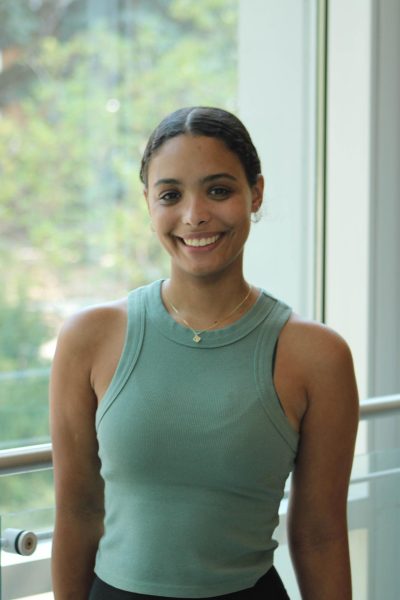Every year since 1987, the month of October marks National Domestic Violence Awareness Month, and the Weber State University Women’s Center is raising awareness and helping those who may be afflicted.
“We know that domestic violence is higher in Utah than the national average,” Mercedes Ziegler, violence prevention coordinator at the Women’s Center, said. “One in three women and one in five men in Utah experienced domestic violence, and that can include physical, sexual, emotional, mental, financial, academic, a bunch of different types. We know that this type of harm directly affects our students and their academic access or employees or campus community as a whole.”
According to the Utah Women and Leadership Project, not only will one in three women in the state of Utah experience contact sexual violence, physical violence or stalking by an intimate partner in their lifetime, 41% of women in Utah will face some sort of physical aggression and 36% will experience coercive control in their lifetime, as of 2023. They also report that 21% of women in Utah who have reported domestic violence state that they have been in multiple abusive relationships.
The national average for domestic violence is about one in three women and one in nine men, according to the National Coalition Against Domestic Violence.
“We’re really focused on not only providing victim services, but doing prevention education,” Paige Davies, Women’s Center director, said. “We have workshops that our Safe@Weber peer educators teach about healthy relationships and consent and communication. I think it’s really important to acknowledge because it happens a lot in our state and it happens to our campus community a lot more than people realize.”
In addition to its regular violence prevention and awareness and healthy relationship workshops, the Women’s Center helped set up the Clothesline Project at WSU and the second annual WSU Human Trafficking Symposium to raise awareness during Domestic Violence Awareness Month.
“[The Clothesline project is] shirts that people have made either to honor their own survivorship or somebody that they know,” Ziegler said. “Different colors mean different things, depending on the type of victimization and then obviously, they have those empowering messages on them to kind of reclaim their voices in that way.”
The Human Trafficking Symposium will be held on Oct. 26 from 8 a.m. to 2 p.m. in the Shepherd Union Ballrooms. This event is held to raise awareness on human trafficking and how to prevent and spot trafficking. The event will host special guest Elizabeth Smart as the keynote speaker. Smart was kidnapped from Salt Lake City at age 14 and held for nine months.
October is also LGBTQ history month, and the Women’s Center is also trying to acknowledge that dating and relationship violence can happen to anyone, regardless of gender or sexual orientation.
According to the NCADV, 43% of lesbian women, 61% of bisexual women, 26% of gay men and 37% of bisexual men will experience some sort of domestic violence within their lifetime.
“Unfortunately, we know that people in the LGBTQ+ community are almost six times more likely to experience relationship violence,” Ziegler said. “We really want to make sure that we’re focusing on that intersectionality and serving everybody and realizing that domestic violence looks really different for a lot of people.”
Because awareness is the first step in prevention, the Women’s Center has created the Safe@Weber Ambassadors program in order to train students at WSU to spot domestic violence and what to do when that happens.
“We’re starting a Safe@Weber Ambassadors program that we’re working to engage students and give them a little bit of extra training, so that they can be student leaders and helping people know what the resources are,” Davies said. “They’re not necessarily going to become like victim advocates, but more like peer mentors who can step in and say, ‘Hey, I know where you can go for help. I know what the resources are. Let me help you.’ We’re excited about that program … We’re trying to focus on what can have long-lasting, substantial change within our communities.”
The Women’s Center has resources for those who are facing domestic violence or have a loved one who is facing domestic violence. From Safe@Weber to workshops to access to shelters and counseling for those who are trying to leave the situation, the Women’s Center has the ability to help those who may otherwise feel helpless.
“Help is always available,” Davies said. “We have services for any students or employees who are experiencing domestic violence. It doesn’t matter their gender, age, sexual orientation, relationship status, any of that. Those services are free and confidential. We take a really survivor centered approach so we’re not going to jump in and tell somebody like you have to leave and this is how you do it and you do it tonight. We focus on what are the needs of that survivor and how do we help them be safe and you know. They might not be ready to leave a relationship yet or might not want to, and so we meet them where they are and have that conversation rather than trying to tell them what to do.”















